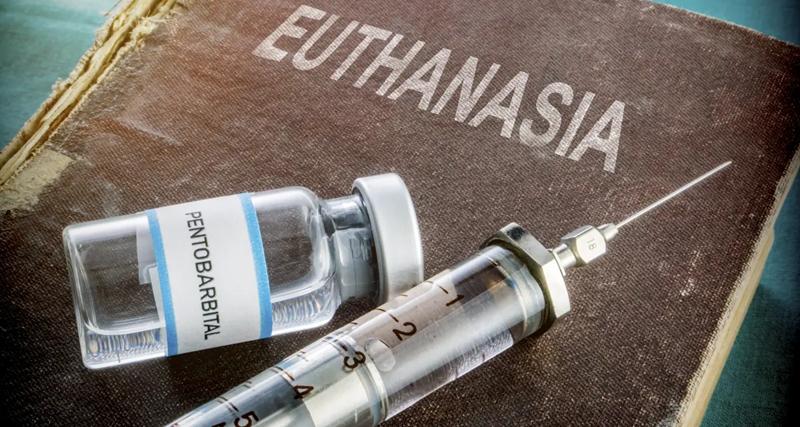Euthanasia
Euthanasia

Many Christians have long predicted that euthanasia would be the next issue after abortion is generally accepted. Do not both issues deal with man's desire to be autonomous, also in matters of life and death?
At the time of writing, a court judge in Quebec is considering a request from a 24-year-old woman that the respirator be disconnected. In Washington State a referendum is planned “which would allow doctors to administer 'aid in dying' to patients with less than six months to live.” If it passes, Washington State will become the first jurisdiction in the world with legal euthanasia.
This quote is taken from a commentary in World (Nov. 9, 1991). The author, Charles Krauthammer, contends that,
… A license to kill inevitably corrupts the doctor and endangers the patient. Euthanasia once permitted is not as easily contained as its promoters pretend.
He then asks the question, How do we know? His answer: We have the experience of the one Western jurisdiction where euthanasia is tolerated (though still technically illegal): the Netherlands. On September 12, the Dutch government released the report of its Committee to Investigate the Medical Practice of Euthanasia. In a country where 130,000 people die each year, there are 2,300 cases of voluntary euthanasia. The report estimates, however, that there are more than 1,000 cases in which the doctors deliberately bring on death 'though the patient has submitted no explicit request for that.'
That means that there are 1,000 cases in which the doctor kills a patient without having been asked. And of these 1,000, the Dutch report indicates, a quarter had some ability to assess their situation and, of these, more than half were fully able to evaluate their situation. Yet one doctor decided to put them to death.
In Holland, as in America, advocates of euthanasia assert that all they seek is to help the patient do what he wants, to honour and augment his autonomy. But, as Carlos Gomez concludes in his superb book Regulating Death: Euthanasia and the Case of the Netherlands:
Throughout my study and analysis of the situation in the Netherlands, I have been plagued with the sense that something other than an argument from autonomy was at work. I had the sense that some [physicians] felt that certain patients were better off dead, that it was a humane act to kill them.
The Dutch government study bears him out. It has a table listing “the most important considerations which influence the decision of the physician to terminate life without explicit request of the patient.” “Low quality of life” scores 31 per cent, and “the family could no longer take it” scores 32 per cent.
Dutch doctors are not monsters. They are human. But as Hippocrates knew, once humans start to kill, it gets easier.
The law of the slippery slope applies:
Withdrawing treatment at a patient's request is one thing. No one is required to endure the indignities of high-tech medicine. But activity killing is quite another. It opens the gate to the most terrible of abuses. First the terminally ill, then the Down's syndrome children, then the Alzheimer's patients, and then anyone whose life we do not consider worth living.

Add new comment